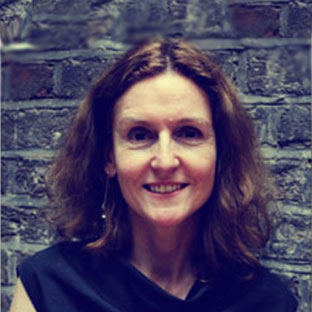By Emily Campbell, former Director of Design, RSA Projects.
Ludwig ‘Poppa’ Guttmann, the founder of the Paralympic Games, has had reasonably wide exposure in the associated media as the clinician who forged Stoke Mandeville’s status (reinforced vigorously by the late Jimmy Saville) as the UK flagship for the rehabilitation of patients with spinal cord injuries; that is, of para- and tetraplegics.
The spinal injury units and spinal injury charities focus energetically on sport as a means of self-actualisation and social reintegration following a devastating injury. Also for health reasons, of course. But imagine if you broke your back or your neck and had never been interested in sport. Not being particularly sporty myself I imagine this vividly. I might accept different terms and conditions attending my personal fitness, and a need to try harder or work differently to maintain it. But I can’t imagine suddenly or even gradually conceiving a thrill for competitive or even recreational sport. I’d be wanting other aspects of my life – my social and cultural habits, my personal relationships, my household management, my parenting, my seeing the world, my practical pursuits and my life of the mind – to continue and be enriched. I can’t be the only one. As a Trustee of Aspire, one of the national spinal cord injury charities, I’ve been open about my greater interest in the sociological and psychological aspects of injury and its public perception than I am in the admittedly quite fantastic range of fund- and awareness-raising that goes on through sport.
Turns out when I took our Design & Rehabilitation project – a proposal to give design training to people with spinal cord injuries – to Stoke Mandeville, Consultant Dr Allison Graham took an interest in it precisely because it explored a different route to self-actualisation – and to creativity and, potentially – employment than the conventional route of sport.
The Paralympics are awesome. Many Paralympian athletes give a direct and vivid rebuff and counter to the very idea of disability by virtue of their incredible skill and the acquisition of it in defiance of the odds. But for disabled people without the sporting or competitive gene, here’s food for thought. To coincide with the close of the London 2012 Paralympics the RSA is publishing its report on a series of pilot design workshops for rehabilitation inpatients and ex-patients of three national spinal injury centres in partnership with the design departments of three local universities, funded by the Sylvia Adams Charitable Trust, which took place between October 2011 and February 2012.
The activity was mental, collaborative and creative; the challenges not physical but perceptual. In fact the process of seeing from someone else’s perspective, key to many of the exercises in all three centres, naturally evolved into a strong sense of design as an inherent re-imagining of one’s future: a very strong analogy for rehabilitation.
For further enquiries please contact Melanie Andrews at melanie.andrews@rsa.org.uk


Be the first to write a comment
Please login to post a comment or reply.
Don't have an account? Click here to register.